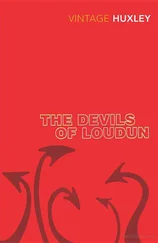Uttarakuru, we see, resembles the landscapes of the mescalin experience in being rich with precious stones. And this characteristic is common to virtually all the Other Worlds of religious tradition. Every paradise abounds in gems, or at least in gem–like objects resembling, as Weir Mitchell puts it, 'transparent fruit.' Here, for example, is Ezekiel's version of the Garden of Eden. 'Thou hast been in Eden, the garden of God. Every precious stone was thy covering, the sardius, topaz and the diamond, the beryl, the onyx and the jasper, the sapphire, the emerald and the carbuncle, and gold…. Thou art the anointed cherub that covereth … thou hast walked up and down in the midst of the stones of fire.' The Buddhist paradises are adorned with similar 'stones of fire.' Thus, the Western Paradise of the Pure Land Sect is walled with silver, gold and beryl; has lakes with jewelled banks and a profusion of glowing lotuses, within which the Bodhisattvas sit enthroned.
In describing their Other Worlds, the Celts and Teutons speak very little of precious stones, but have much to say of another and, for them, equally wonderful substance—glass. The Welsh had a blessed land called Ynisvitrin, the Isle of Glass; and one of the names of the Germanic kingdom of the dead was Glasberg. One is reminded of the Sea of Glass in the Apocalypse.
* * * * *
Most paradises are adorned with buildings, and, like the trees, the waters, the hills and fields, these buildings are bright with gems. We are all familiar with the New Jerusalem. 'And the building of the wall of it was of jasper, and the city was of pure gold, like unto clear glass. And the foundations of the wall of the city were garnished with all manner of precious stones.'
Similar descriptions are to be found in the eschatological literature of Hinduism, Buddhism and Islam. Heaven is always a place of gems. Why should this be the case? Those who think of all human activities in terms of a social and economic frame of reference will give some such answer as this: Gems are very rare on earth. Few people possess them. To compensate themselves for these facts, the spokesmen for the poverty–stricken majority have filled their imaginary heavens with precious stones. This 'pie in the sky' hypothesis contains, no doubt, some element of truth; but it fails to explain why precious stones should have come to be regarded as precious in the first place.
Men have spent enormous amounts of time, energy and money on the finding, mining and cutting of coloured pebbles. Why? The utilitarian can offer no explanation for such fantastic behaviour. But as soon as we take into account the facts of visionary experience, everything becomes clear. In vision, men perceive a profusion of what Ezekiel calls 'stones of fire,' of what Weir Mitchell describes as 'transparent fruit.' These things are self–luminous, exhibit a praeternatural brilliance of colour and possess a praeternatural significance. The material objects which most nearly resemble these sources of visionary illumination are gem–stones. To acquire such a stone is to acquire something whose preciousness is guaranteed by the fact that it exists in the Other World.
Hence man's otherwise inexplicable passion for gems and hence his attribution to precious stones of therapeutic and magical virtue. The causal chain, I am convinced, begins in the psychological Other World of visionary experience, descends to earth and mounts again to the theological Other World of heaven. In this context the words of Socrates, in the Phaedo , take on a new significance. There exists, he tells us, an ideal world above and beyond the world of matter. 'In this other earth the colours are much purer and much more brilliant than they are down here…. The very mountains, the very stones have a richer gloss, a lovelier transparency and intensity of hue. The precious stones of this lower world, our highly prized cornelians, jaspers, emeralds and all the rest, are but the tiny fragments of these stones above. In the other earth there is no stone but is precious and exceeds in beauty every gem of ours.'
In other words, precious stones are precious because they bear a faint resemblance to the glowing marvels seen with the inner eye of the visionary. 'The view of that world,' says Plato, 'is a vision of blessed beholders'; for to see things 'as they are in themselves' is bliss unalloyed and inexpressible.
Among people who have no knowledge of precious stones or of glass, heaven is adorned not with minerals, but flowers. Praeternaturally brilliant flowers bloom in most of the Other Worlds described by primitive eschatologists, and even in the begemmed and glassy paradises of the more advanced religions they have their place. One remembers the lotus of Hindu and Buddhist tradition, the roses and lilies of the West.
'God first planted a garden.' The statement expresses a deep psychological truth. Horticulture has its source—or at any rate one of its sources—in the Other World of the mind's antipodes. When worshippers offer flowers at the altar, they are returning to the gods things which they know, or (if they are not visionaries) obscurely feel, to be indigenous to heaven.
And this return to the source is not merely symbolical; it is also a matter of immediate experience. For the traffic between our Old World and its antipodes, between Here and Beyond, travels along a two–way street. Gems, for example, come from the soul's visionary heaven; but they also lead the soul back to that heaven. Contemplating them, men find themselves (as the phrase goes) transported —carried away towards that Other Earth of the Platonic dialogue, the magical place where every pebble is a precious stone. And the same effects may be produced by artifacts of glass and metal, by tapers burning in the dark, by brilliantly coloured images and ornaments, by flowers, shells and feathers, by landscapes seen, as Shelley from the Euganean Hills saw Venice, in the transfiguring light of dawn or sunset.
Indeed, we may risk a generalization and say that whatever, in nature or in a work of art, resembles one of those intensely significant, inwardly glowing objects encountered at the mind's antipodes, is capable of inducing, if only in a partial and attenuated form, the visionary experience. At this point a hypnotist will remind us that, if he can be induced to stare intently at a shiny object, a patient may go into trance; and that if he goes into trance, or if he goes only into reverie, he may very well see visions within and a transfigured world without.
But how, precisely, and why does the view of a shiny object induce a trance or a state of reverie? Is it, as the Victorians maintained, a simple matter of eye strain resulting in general nervous exhaustion? Or shall we explain the phenomenon in purely psychological terms—as concentration pushed to the point of mono–ideism and leading to dissociation?
But there is a third possibility. Shiny objects may remind our unconscious of what it enjoys at the mind's antipodes, and these obscure intimations of life in the Other World are so fascinating that we pay less attention to this world and so become capable of experiencing consciously something of that which, unconsciously, is always with us.
* * * * *
We see then that there are in nature certain scenes, certain classes of objects, certain materials, possessed of the power to transport the beholder's mind in the direction of its antipodes, out of the everyday Here and towards the Other World of Vision. Similarly, in the realm of art, we find certain works, even certain classes of works, in which the same transporting power is manifest. These vision–inducing works may be executed in vision–inducing materials, such as glass, metal, gems or gem–like pigments. In other cases their power is due to the fact that they render, in some peculiarly expressive way, some transporting scene or object.
Читать дальше











